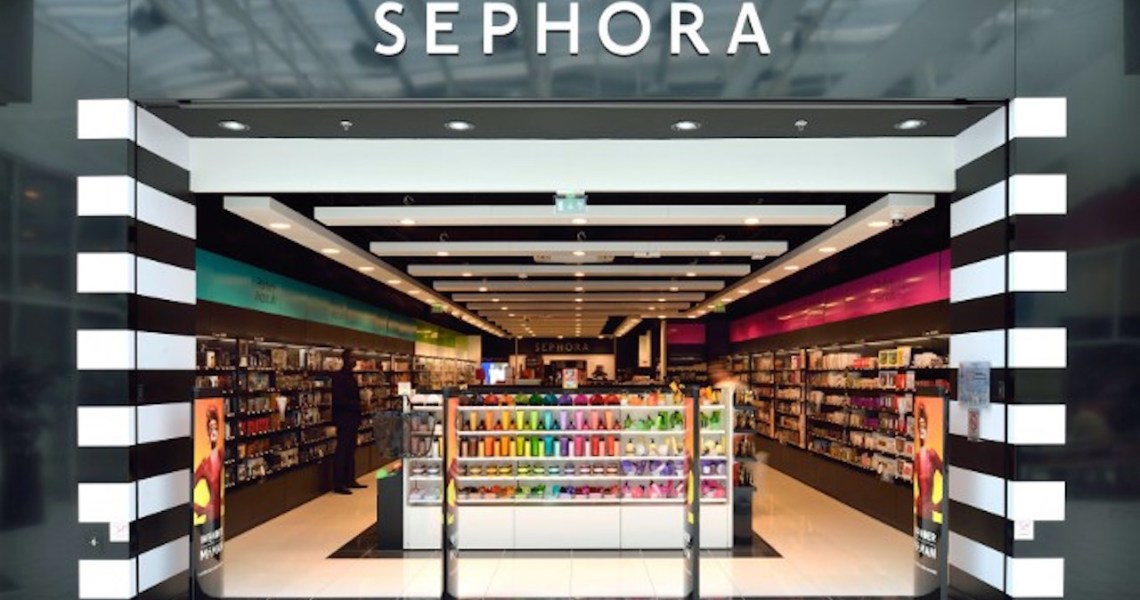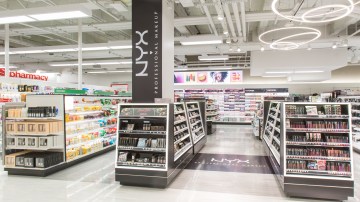Since its creation in 2015, Sephora’s Accelerate program has given the retailer a front-row seat to emerging beauty trends.
Sephora hosts the annual Accelerate program, designed for indie companies, through the use of a weeklong “boot camp” with topics ranging from merchandising to finance; mentorship with a beauty industry insider; an undisclosed funding grant; and a one-day event called “Demo Day” where founders pitch their brands to nearly 200 people from the investment community, Sephora employees and beauty industry experts. On Wednesday, Sept. 25, the most recent iteration of the program concluded.
Participating companies must have a product (meaning they’re a beauty brand), be a sustainable vendor in an area like packaging or be a technology provider. The program is tweaked a little every year, providing Sephora and the indie brands the opportunity for newness and fresh takeaways. This year, Sephora had the largest cohort of companies to date, at 15, with eight from countries other than the U.S., including Australia. Accelerate provides Sephora the opportunity to see what is emerging within the market. While a sustainable focus previously has only been a requirement of vendors in the program, it was present across all brands this year.
“We’ve seen [sustainability] emerge, that there is a broader commitment to sustainable practices,” said Corrie Conrad, Sephora’s vp of diversity and inclusion as well as Sephora Stands, the company’s social impact strategy division. “We are seeing that sustainability is front and center for a lot of brands’ DNA, through the transparency of ingredients and supply chain or responsible practices in packaging.”
Overall, this year’s cohort consisted mostly of brands, at 11. These brands spanned a wide range, from ingestibles company The Tonik to wellness brand Médène, which makes personalized essential oils. Each included brand had eco-friendliness built into its social responsibility, thanks to the increased attention paid to issues like single-use plastic.
“Being a sustainable brand is the least we can do,” said Julia Alcantara, founder of Brazilian beauty brand Orna Makeup. “It’s not even a question. When we started our brand, we focused on reducing plastic packaging by using glass products. When building a new brand, you should be automatically thinking about sustainability.”
As more of the companies had sustainability as an integral core of the brand, Sephora dedicated more time to the topic. For the first time, the boot camp curriculum included a session on sustainability, covering eco-design packaging, manufacturing, ingredients and transparency. Attendees at Demo Day were also vested in learning more about each brand’s sustainability initiatives, particularly packaging, said Helene Segol, founder of blend-it-yourself skin-care company Green Barbes.
In-store, Sephora is also responding to the increased demand for sustainability and is currently testing a pilot recycling program that began in the third quarter in Colorado and Utah allowing customers to bring back three containers from brands Sephora carries to receive a 15% discount on Sephora Collection products. Sephora makes no promises to Accelerate participants regarding future partnerships, but all 19 brands that have graduated the program in previous years have landed in retailers, including seven that have been picked up by Sephora either in the U.S., Mexico or France, said Conrad. Among recent examples is clean fragrance brand Skylar, which went through the program in 2017 and launched at Sephora in June.
“Sustainability is an area where our clients want to see brands leading,” said Conrad. “We want to buy things that reflect our values, and we vote with our dollars, so there is a movement toward value-driven companies using their businesses to make the world a better place.”




